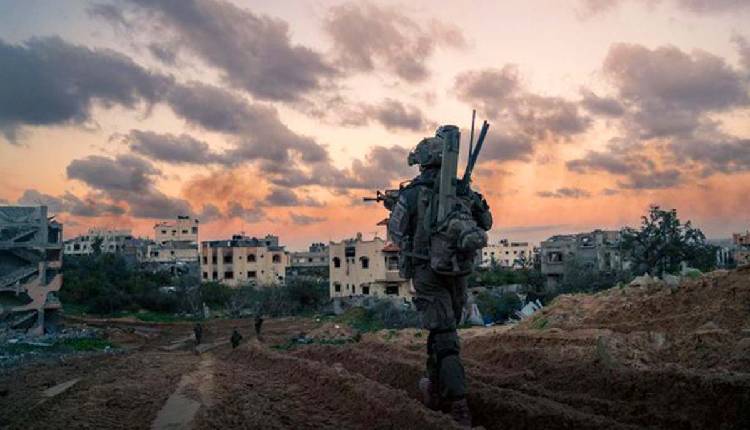According to sources, as negotiations in Cairo for a ceasefire in the ongoing Israel-Hamas war in the Gaza Strip continue, the Palestinian militant group has expressed concern about the temporary ceasefire and informed mediators that it wants a permanent end to the conflict. This highlights the wide contrasts between Israel and Hamas, as international pressure on both sides for a ceasefire mounts.
According to Egyptian sources, Hamas has expressed a desire for a complete end to the fighting and the rehabilitation of Palestinians who have been moved from north Gaza to the southern Gaza Strip since the conflict began. According to sources in Israeli Prime Minister Benjamin Netanyahu’s office, Hamas is not willing towards a temporary ceasefire.
According to Israel’s Defense Ministry sources, Hamas will have to provide a response to the mediators on Thursday, on its position regarding the hostages. Netanyahu has told US Secretary of State Antony Blinken that Israel will attack Rafah city, where over a million people are sheltering, “with or without” a ceasefire deal and they have already deployed a military unit in the region.
An “extraordinarily generous” ceasefire deal
This came after Hamas was considering a new framework proposed by Egypt, described by Blinken as “extraordinarily generous”, that has called for it to release as many as 33 hostages abducted from Israel on October 7 last year in exchange for a pause in prolonged hostilities. The proposal, which Israel helped craft but did not fully agree to, comes at a time of rising international alarm over a possible Israeli invasion in the city of Rafah in Gaza.
Egypt’s current plan is divided into two parts: the first calls for the release of 20 to 33 hostages over several weeks in exchange for a ceasefire and the release of 600 Palestinian prisoners. The second phase, described as the “restoration of sustainable calm,” will see the remaining hostages, detained Israeli soldiers, and hostage bodies exchanged for more Palestinian captives.
This could be a start toward ending the catastrophic war, in which more than 34,000 Palestinians have been killed and the majority of the region has been devastated, following months of deadlock. However, failure to agree would increase Israel’s involvement in Gaza. “In this moment the only thing standing between the people of Gaza and a ceasefire is Hamas. They (Hamas) have to decide and they have to decide quickly. I’m hopeful that they will make the right decision,” Blinken told World Economic Forum (WEF) President Børge Brende in the Saudi capital Riyadh.
What does Hamas want?
Hamas has insisted that any compromise must include a permanent truce and full Israeli disengagement. In contrast, Israel has stated that it will continue its operation in Gaza until Hamas is eradicated. However, Israel has conceded to Hamas’ demand for unlimited Palestinian movement to northern Gaza, a key concession in progressing negotiations.
Meanwhile, a top Qatari official encouraged Israel and Hamas to show “more commitment and more seriousness” in negotiations. Qatar, which houses Hamas’ headquarters in Doha, worked with the United States and Egypt to negotiate a brief pause to violence in November, resulting in the release of scores of captives. However, in a hint of displeasure, Qatar this month said that it was reassessing its role.
In a meeting with Netanyahu on Wednesday, Blinken stated that he had yet to see a plan for Israel’s planned offensive on the southern Gaza city of Rafah that would protect civilians, repeating that Washington would not support such an attack. “There are other, and in our opinion, better ways, of dealing with the… ongoing challenge of Hamas that do not require a major military operation in Rafah,” he said, adding that it was the topic of ongoing discussions with Israeli officials.
Source:In







 Finance
Finance







